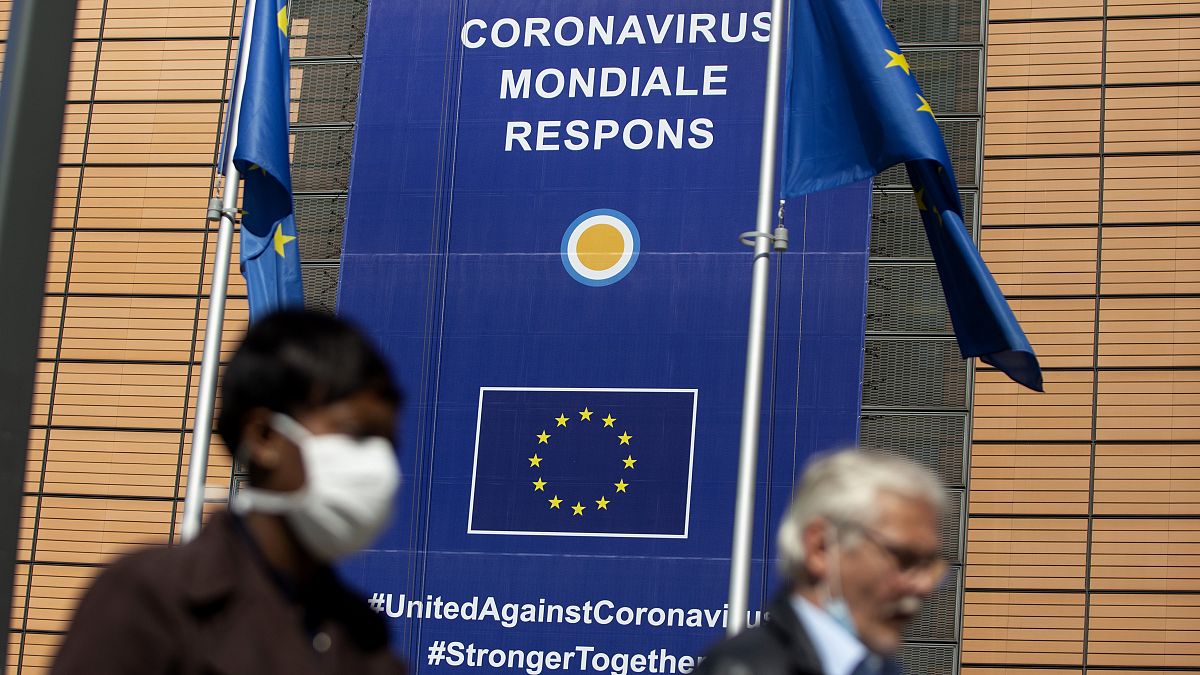A majority of Europeans is in favour of more EU cooperation to tackle the pandemic and other issues of global significance but "this is a Europe of necessity rather than of choice," new research has found.
The COVID-19 pandemic has lead Europeans to radically reassess their view of the global order with a majority now keen on more EU-wide cooperation to face global challenges, new research has found.
Drawing on data from nine EU member states — which together comprise two-thirds of the bloc's population — research from the European Council on Foreign Relations (ECFR) found that 63 per cent of Europeans are in favour of more EU cooperation to tackle the pandemic and other issues of global significance.
The authors found that although some commentators predicted that the pandemic would lead to a surge in Euroscepticism and nationalism as borders were shut, the opposite is true. Large majorities of people in all surveyed countries said that they are now more firmly convinced of the need for further EU cooperation than they were before the crisis.
They stressed however that "this support for more EU cooperation is conditional, and should not be viewed by lawmakers as a call for more institution-building or as a vote of confidence in the existing EU structure".
'Great paradox'
Meanwhile, the overall number of people who are losing trust in the capacity of governments to act is actually bigger than those who have become keener on government intervention as a result of the crisis.
Across all nine countries surveyed — Bulgaria, Denmark, France, Germany, Italy, Poland, Portugal, Spain, and Sweden — only 29 per cent of respondents have greater confidence in their government. In contrast, 33 per cent have lost confidence in the power of government.
"The COVID-19 crisis is most probably the greatest social experiment in our lives. It is still too early to predict how radically it will change our societies, but it is already obvious that the pandemic has changed the way Europeans view the world outside of Europe, and, as a result, the role of the EU in their lives," Ivan Krastev, chairman of the Centre for Liberal Strategies and co-author of the paper, said.
"The great paradox of COVID-19 is that it was the absence rather than the success of the European Union that demonstrated its relevance in the first stage of the crisis that urged European governments to opt for deeper integration," he added.
Respondents in each country were more likely to say that no one was there to help them during the crisis than to agree that the EU provided assistance. In fact, only in Poland was the EU seen as more helpful than the World Health Organisation (WHO), China or the US.
Beijing and Washington have also seen their reputation collapse across the Old Continent. In the case of China, Europeans disliked the aggressive way it treated other countries in its response to the crisis, while the pandemic has revealed the US to be "divided in its response to the present crisis and haunted by its history".
'A Europe of necessity rather than of choice'
The pandemic has thus led to Europeans changing the way they see the world beyond Europe and to "radically reassess the purpose and role of the EU in their lives".
Based on this, the authors constructed three mental models that European citizens use to understand the world after the crisis.
The least numerous — amounting to 15 per cent of respondents — were dubbed the "New Cold Warriors" and typically expect to live in a bipolar world with the US remaining the leader of the free world and China asserting itself as the leader of an autocratic axis including Russia and Iran.
Next came the "DIYers", accounting for 29 per cent of those polled. These tend to more nationalistic in focus and include people who believe their government is capable of making alliances of convenience with other players for the defence of their interests. It also included people who have little faith in the capacity of their states but who cannot see any prospect for effective cooperation either on a European or global level.
But the "Strategic Sovereigntists" made up the biggest group with 42 per cent of respondents. They believe that the EU's relevance will be dependent on its capacity to act as a cohesive bloc.
"For them, Europe is no longer mainly a project motivated by ideas and values, it is a community of fate that must cling together to take back control over its future. Members of this group are also increasingly interested in promoting environmental issues and see Europe’s role in the world as a progressive bloc that should pursue new initiatives," the paper states.
For Mark Leonard, founder and director of ECFR and the other co-author of the research, the call for more cooperation at the EU level, therefore, stems "from a deeper anxiety of losing control in a dangerous world. This is a Europe of necessity rather than of choice."
"The European project is being rethought not as an integration process based on ideals but one based on fate. It is the shared geography that dictates common action more than shared values," he added.
